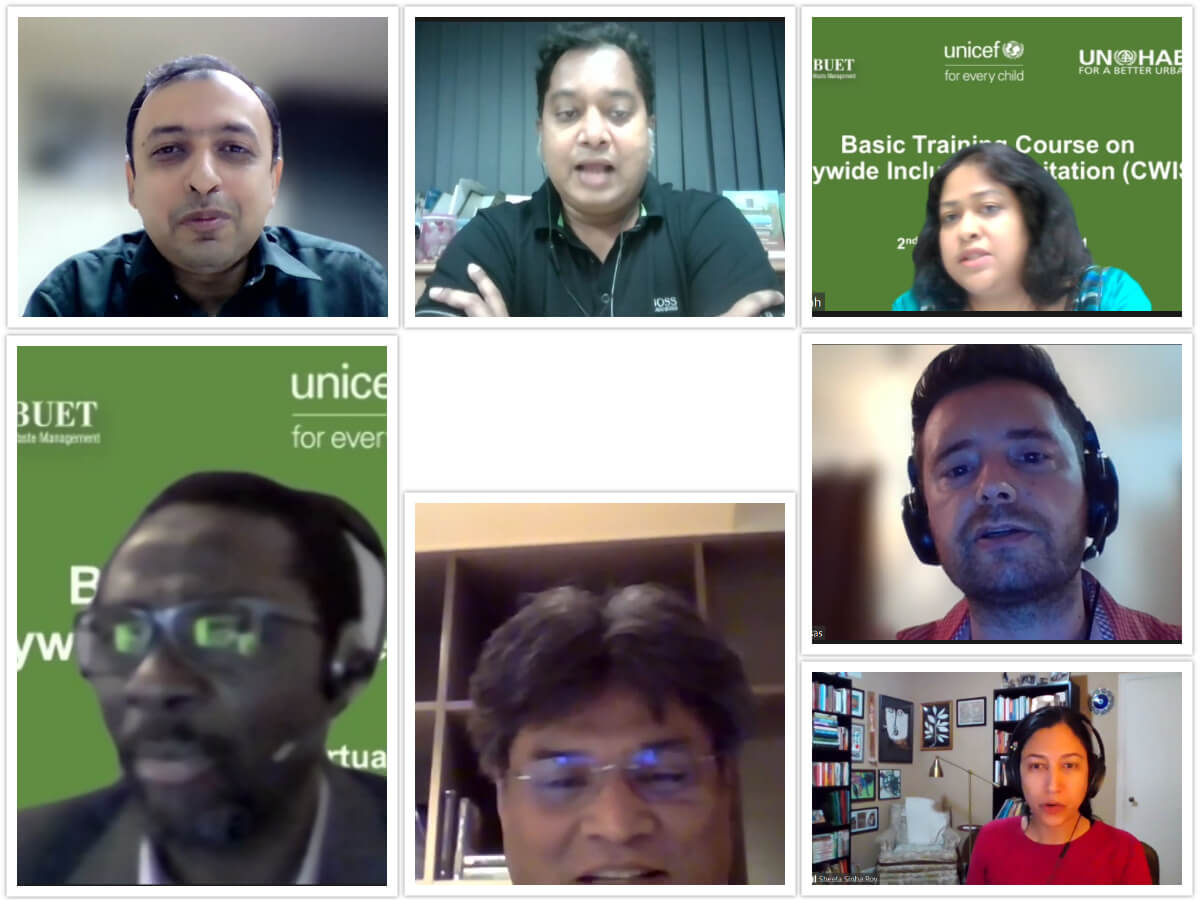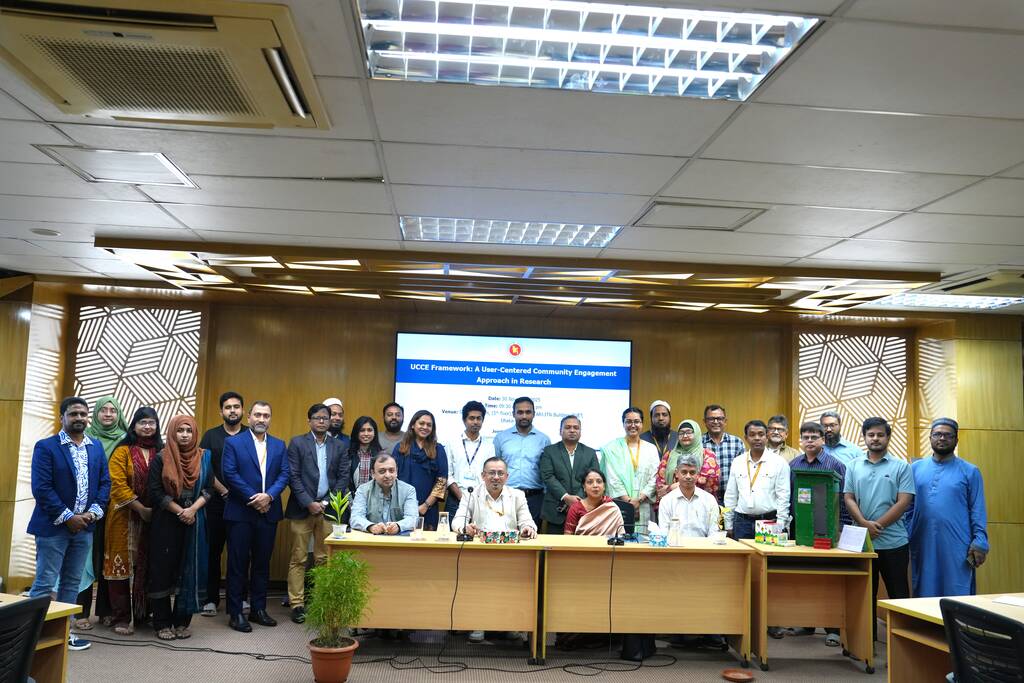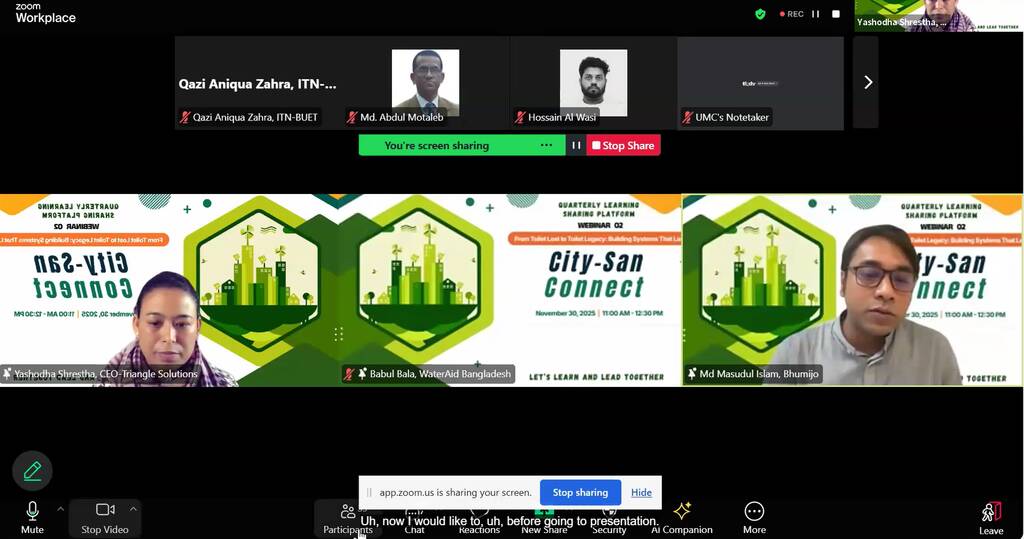More than 100 officials working with UNICEF and UN-Habitat joined in a 2-day workshop on Citywide Inclusive Sanitation (CWIS) on 2nd and 9th November 2021. The training program was led by ITN-BUET in collaboration with UNICEF and UN-Habitat. Urban sanitation is a vital development agenda, and CWIS is an innovative approach to ensure that everyone in an urban area benefits from sanitation services, and it has all the elements to address the SDG sanitation targets.

The CWIS training program comprised of two modules and eight specialized sessions. The modules focused on linking up the safely managed sanitation agenda with urban development, delivering the concept of CWIS, its principles and framework. Using sanitation and urban settings diagnostic tools, sorting technological solutions along the sanitation service chain, recognizing the enabling environment, gender mainstreaming and other cross-cutting issues, planning, monitoring and evaluation for CWIS integration for different target groups and local settings were also highlighted.
Mr. Ann Thomas, Senior Adviser, WASH UNICEF Headquarter, and Mr. Hezekiah O. Pireh, WASH Expert, UN-Habitat, were the guest speakers of the inauguration session of the event. Mr. Thomas said that the world is on the highway to achieve SDG 6 agenda by providing safely managed sanitation for all. Sector professionals should be equipped enough for sanitation programs across the world. He hoped that the training would accelerate the process and pave the way to build partnerships among the country offices. Mr. Pireh commented that there is a need to build the capacity of officials who are specifically working on WASH, before engaging national or local level partners in sanitation projects. He was enthralled by the huge number of participants from different duty stations of UNICEF and UN-Habitat.
Prof. Dr. Md. Mujibur Rahman, Prof. Dr. Tanvir Ahmed, Prof. Dr. Mohammad Ashraf Ali, Dr. Sheela Sinha Roy, Dr. Mokhlesur Rahman, Mr. Bisi Agberemi, Mr. Alauddin Ahmed, Dr. Marc Perez Casas, Mr. Tanvir Ahmed Chowdhury, Mr. Mohammad Imtiaz Sharif, Ms. Makfie Farah, Mr. Md. Azizur Rahman and Ms. Fariha Rahman facilitated and moderated different sessions of the training.
In his speech in the closing session, Dr. Roshan Raj Shrestha, Deputy Director, BMGF, said that, although sanitation is a complex issue, it lacks due attention from the key actors. He emphasized that the marginalized, poor and disadvantaged people should be addressed during project planning and design. Dr. Shrestha hoped that ITN-BUET would organize advanced level training based on the demand from the practitioners in the future. Appreciating the spirit of the participants, Mr. Pireh and Mr. Agberemi hoped to continue the collaboration with ITN-BUET in their future capacity-building initiatives on WASH and CWIS.
Prof. Dr. Tanvir Ahmed, Director, ITN-BUET, applauded the participants for their interactive and fruitful discussion during the sessions. As a new agenda, CWIS comprises many components, which need to be addressed elaborately. Although the training brushed the surface of all the important topics, Dr. Ahmed said that developing a comprehensive CWIS module involving different sector actors is already in the pipeline.
The participants found the course highly useful and relevant. They expressed their commitment to utilize the learnings in their activities, including policy discussions, planning and conducting initial assessment, implementing and monitoring sanitation services, and tracking progress of service provision.





